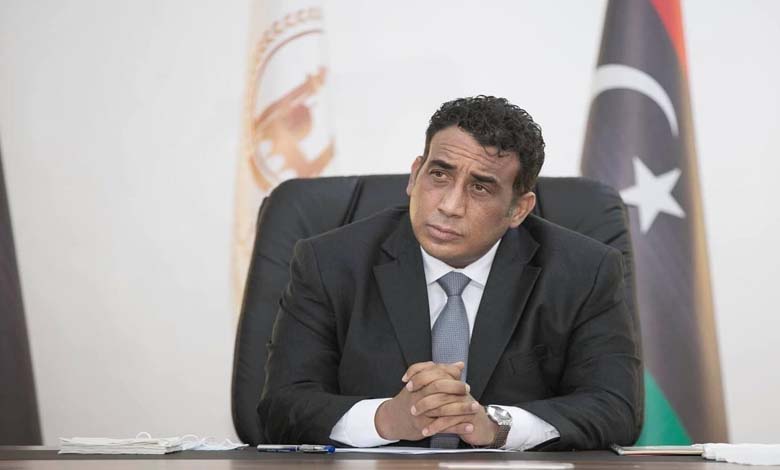Libyan Presidential Council Decrees: A Return Ticket to the Political Spotlight

With a series of unexpected decrees, the Libyan Presidential Council has returned to the heart of the political scene, anticipating a forthcoming announcement from the United Nations.
-
Reconciliation and Elections: Diplomatic Messages to the Libyan Presidential
-
Libyan Presidential demands the cessation of fighting between militias in Tripoli and the opening of an investigation
On Tuesday evening, the Presidential Council issued decrees that included suspending the Constitutional Court Law enacted by the House of Representatives, calling for a General Conference for Reconciliation, and establishing a new national commission.
This move came just days before the expected announcement by the UN mission regarding the outcomes of its advisory committee and its anticipated roadmap for resolving the Libyan crisis.
Observers see these decrees as reflecting an intensifying race for the legitimacy of political instruments, pitting a domestic actor trying to consolidate its presence in the political arena against a UN-led process backed internationally, which relies on elections as the key to restoring legitimacy through recognized institutions.
-
The hopes of Libyans rest on a political breakthrough with elections next year
-
Libya.. The Constitutional Court Ignites a New Crisis between the Presidential Council and Parliament
From the Margins to Action
The three decrees issued by the Presidential Council signal a clear intent to move beyond a merely ceremonial role and position itself as a more influential force within the power structure, amid growing feelings of marginalization in arrangements made without its participation.
Analysts believe the Council aimed to send a clear message: it will no longer settle for being a bystander during a stage where the future is being shaped in its absence, nor will it accept international agreements that might exclude it from the upcoming political landscape.
-
Political and economic solution to Libyan crisis at Biden-Al-Menfi table
-
Washington pressures Libyan institutions accused of obstructing political solution
This step is viewed as an attempt to regain the initiative, particularly after the Council’s successful past interventions in pivotal issues, most notably in reshaping the leadership of the Central Bank.
In an exclusive statement, Libyan political analyst Ayoub Al-Oujli described the decrees as “a dual message—both internal and external—affirming that the Presidential Council remains a political actor that cannot be ignored.”
-
Dbeibeh sparks anger among Libyans with these statements
-
On the road to Libyan elections… Islamist obstacles to prolong disputes
An International Bet
Meanwhile, the United Nations Mission continues its intensive efforts to re-establish legitimacy through elections. The UN Secretary-General’s Special Representative, Hanna Tetteh, is ramping up meetings with Libyan officials and international diplomats to secure support for a plan that includes municipal elections in major cities, as a prelude to a broader national settlement.
The mission is relying on its advisory committee to resolve obstacles related to electoral laws, while trying to maintain a delicate balance between rival parties vying for legitimacy.
Tetteh has emphasized that “restoring institutional legitimacy” is a top priority, underlining the importance of unified support from the UN Security Council.
-
Violent Clashes Between Major Factions Threaten Stability in the Libyan Capital
-
Eastern Libyan government rejects Washington’s support for Dbeibeh in the oil file
A Quiet Battle for the Center of Power
At its core, the situation reveals a quiet yet decisive struggle over who controls the center of decision-making in Libya. The Presidential Council fears being gradually sidelined, while the UN mission steers the transition process, backed by international cover that appears to serve regional and global balances more than pure Libyan will.
As the announcement of the UN committee’s results nears, the Presidential Council seems to be attempting to deliver a political surprise that disrupts the current trajectory, ensuring it is not bypassed in any future political settlement.
-
Saleh, al-Mishri meet in Cairo for Libyan elections
-
Analysts reveal details of Libyan crisis and its economic and political impact on the people
-
Aguila Saleh in the Eid speech.. The achievements of the Libyan parliament and the failures of Dbeibeh
-
Libyan tribes warn Dbeibeh against handing over Senussi to Washington
-
Libya: Presidential Council calls for sparing the country from war












